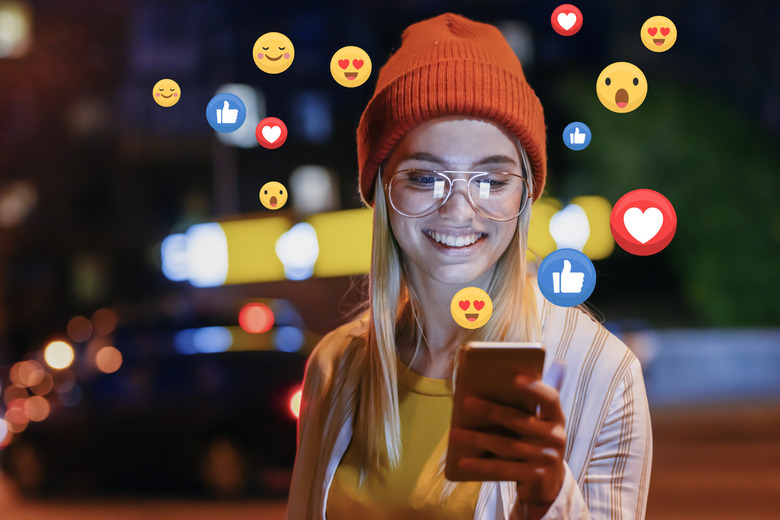Facebook Whistleblower Drops Bombshell That Has Everyone Talking
A series of Wall Street Journal reports showed proof in recent weeks that Facebook is knowingly taking advantage of the toxicity that can appear on Facebook and Instagram. It's doing so in an effort to get people to spend more time inside those apps. The polarizing, hate-filled content is what drives people to keep returning to the apps. In turn, Facebook makes more money off of this engagement. Documents from a whistleblower helped The Journal tell a story that Facebook has repeatedly tried to deny — that Facebook's online properties favor toxic experiences. And we now know who the Facebook whistleblower is because she appeared on CBS News's 60 Minutes.
Frances Haugen is a 37-year-old data scientist who worked at Facebook up until May. That's when she left with tens of thousands of documents that prove Facebook is aware of its social networks' toxicity. Yet, it's not doing everything it can do to create safer products for the billions of people using Facebook's apps.
The Facebook whistleblower
Haugen told CBS News that Facebook had recruited her in 2019, and she joined on the condition that she could be involved in work against misinformation. She had lost a friend to online conspiracy theories, something she didn't want others to experience.
Haugen joined the Civic Integrity division, a group inside Facebook that worked on risks to elections, including misinformation. But Facebook disbanded the group shortly after the November 2020 presidential election, the whistleblower explains:
They told us, 'We're dissolving Civic Integrity.' Like, they basically said, 'Oh good, we made it through the election. There wasn't riots. We can get rid of Civic Integrity now.' Fast forward a couple months, we got the insurrection. And when they got rid of Civic Integrity, it was the moment where I was like, 'I don't trust that they're willing to actually invest what needs to be invested to keep Facebook from being dangerous.'
The whistleblower decided at some point in 2021 to copy tens of thousands of pages of Facebook's internal research. She realized she had to get enough documents so that people could not question the authenticity of the data.
Haugen's lawyers have filed at least eight complaints with the Securities and Exchange Commission (SEC). The whistleblower is protected under the Dodd-Frank act.
What the Facebook documents and whistleblower say
Haugen elaborated on the kind of research that Facebook has on hand. That data shows that Facebook is lying to the public about making progress against harmful content on social media apps like Facebook and Instagram.
Facebook knows that divisive, polarizing content attracts more engagement, so its algorithms promote it
[One] of the consequences of how Facebook is picking out that content today is it is — optimizing for content that gets engagement, or reaction. But its own research is showing that content that is hateful, that is divisive, that is polarizing, it's easier to inspire people to anger than it is to other emotions. [...]
Facebook has realized that if they change the algorithm to be safer, people will spend less time on the site, they'll click on less ads, they'll make less money.
Political parties in Europe leaned on negative ads to make the most of Facebook's algorithms. "You are forcing us to take positions that we don't like, that we know are bad for society," the whistleblower explained when discussing political parties' strategies in Europe. "We know if we don't take those positions, we won't win in the marketplace of social media."
Some of the people who organized the January 6th insurrection relied on Facebook for communication, the whistleblower said. CBS News explains:
After the attack, Facebook employees raged on an internal message board copied by Haugen. '...Haven't we had enough time to figure out how to manage discourse without enabling violence?' We looked for positive comments and found this, 'I don't think our leadership team ignores data, ignores dissent, ignores truth...' but that drew this reply, 'welcome to Facebook! I see you just joined in November 2020... we have been watching... wishy-washy actions of company leadership for years now.' '...Colleagues... cannot conscience working for a company that does not do more to mitigate the negative effects of its platform.'
Facebook knows Instagram harms teenage girls
Haugen discussed internal Instagram research data:
[What's] super tragic is Facebook's own research says, as these young women begin to consume this — this eating disorder content, they get more and more depressed. And it actually makes them use the app more. And so, they end up in this feedback cycle where they hate their bodies more and more. Facebook's own research says it is not just the Instagram is dangerous for teenagers, that it harms teenagers, it's that it is distinctly worse than other forms of social media.
Facebook is worse than other social networks
Before Facebook, the whistleblower worked at Pinterest and Google.
I've seen a bunch of social networks and it was substantially worse at Facebook than anything I'd seen before.
Facebook is already playing defense and has offered responses to many of the whistleblower's claims. The same CBS News report covered them in great detail at this link. To read more and see clips of the interview with the Facebook whistleblower, follow this link. The Wall Street Journal's Facebook Files are also worth a read.
